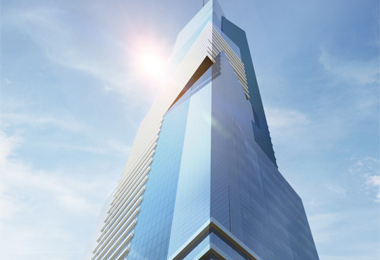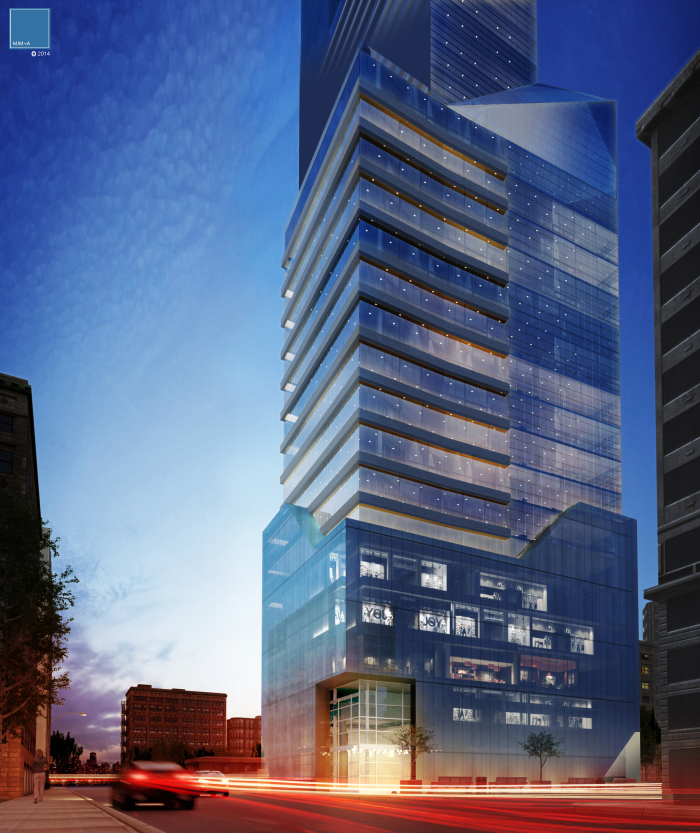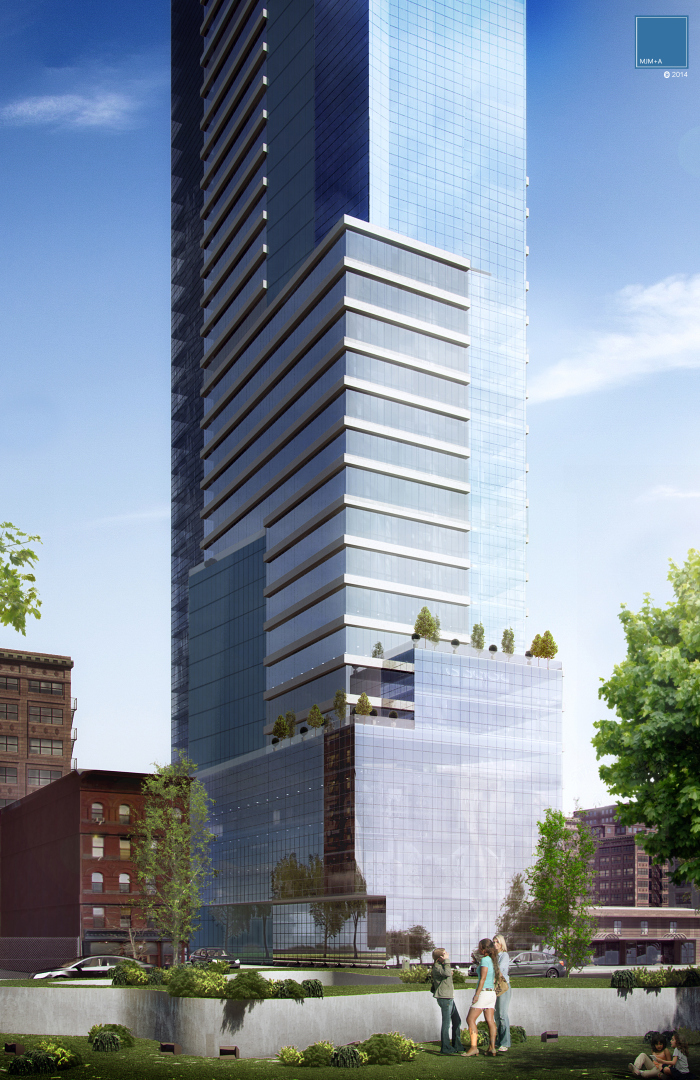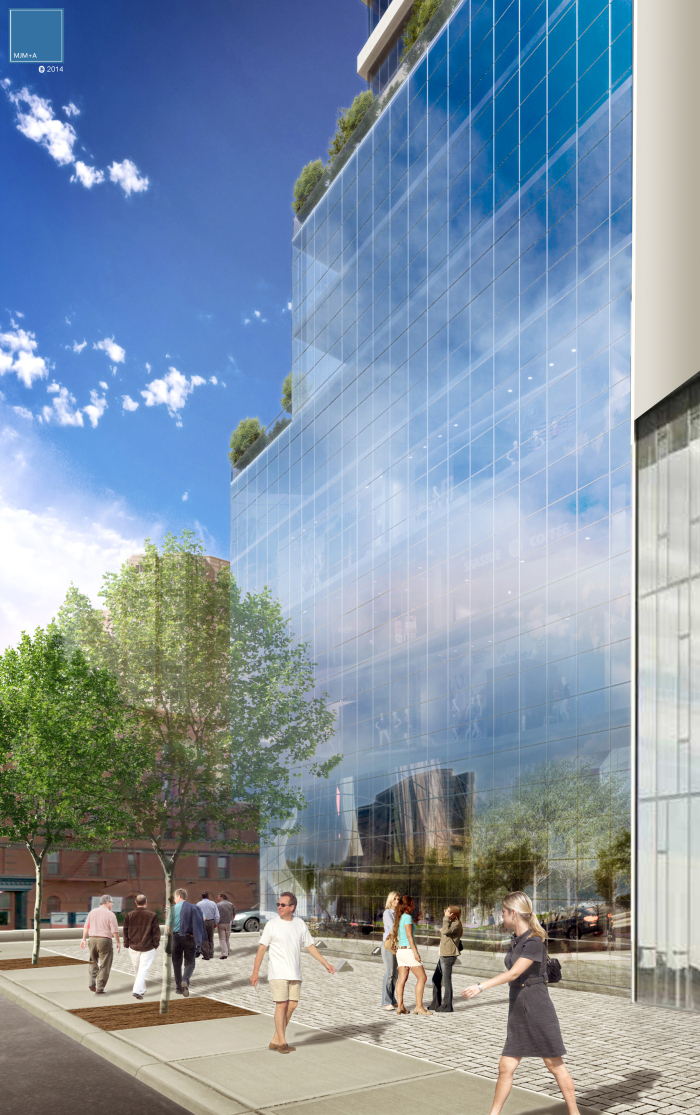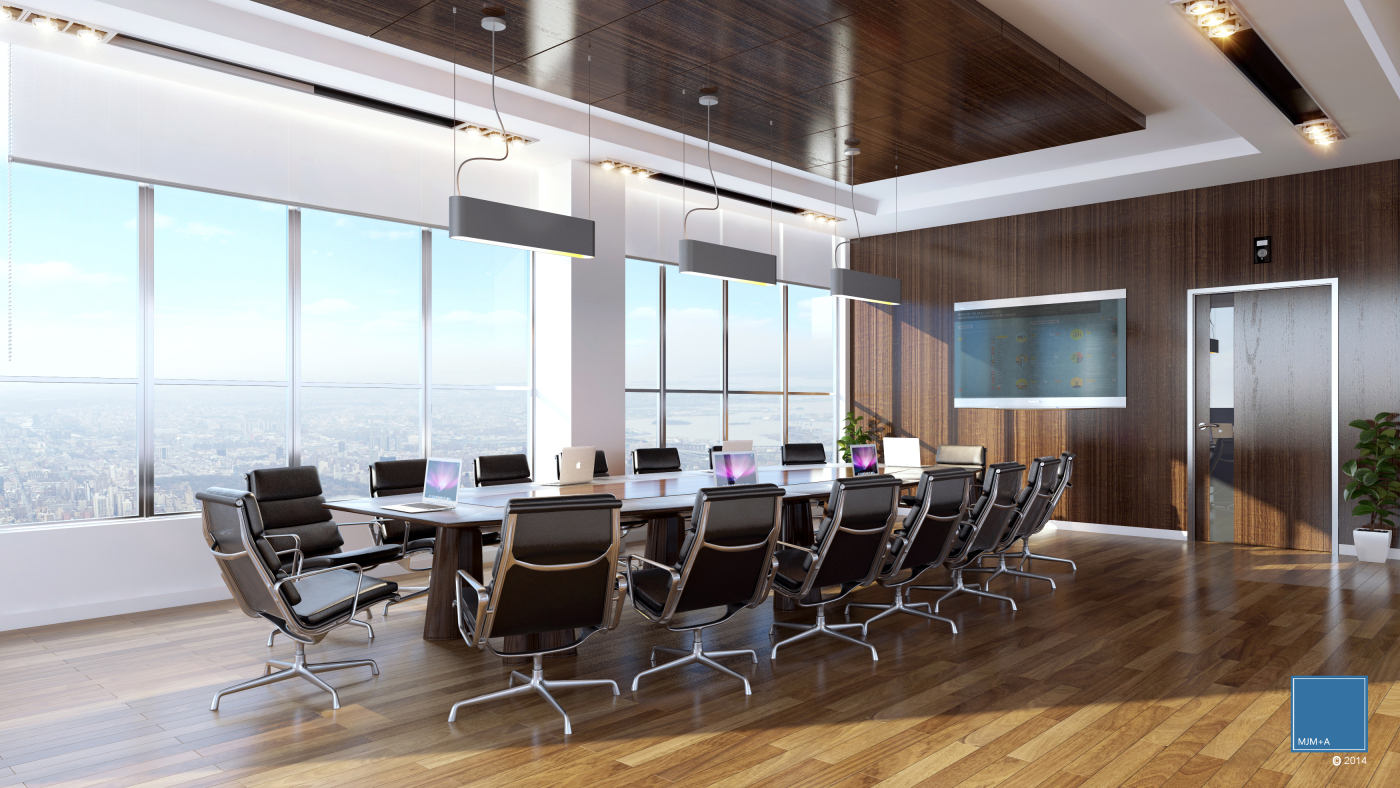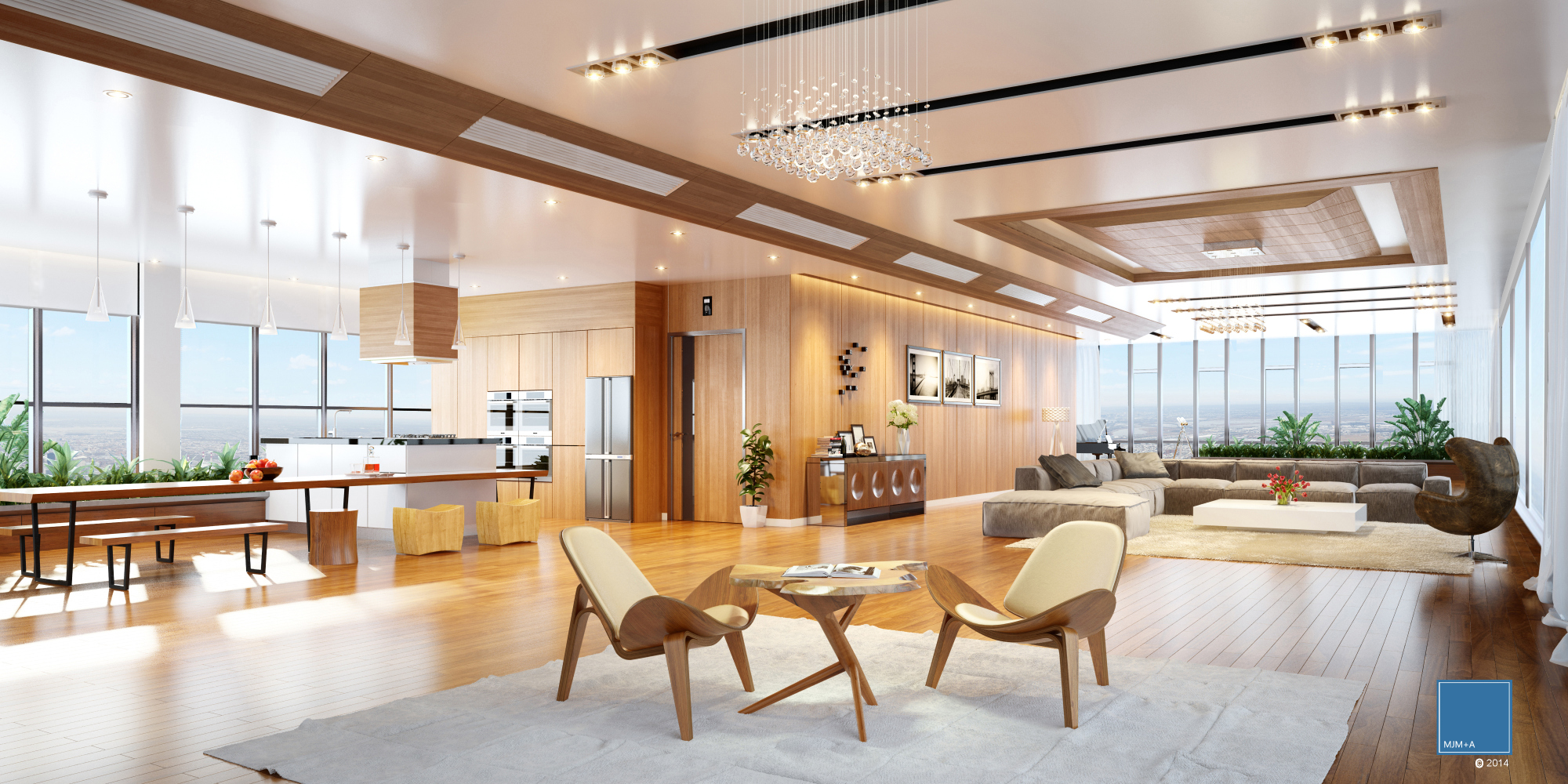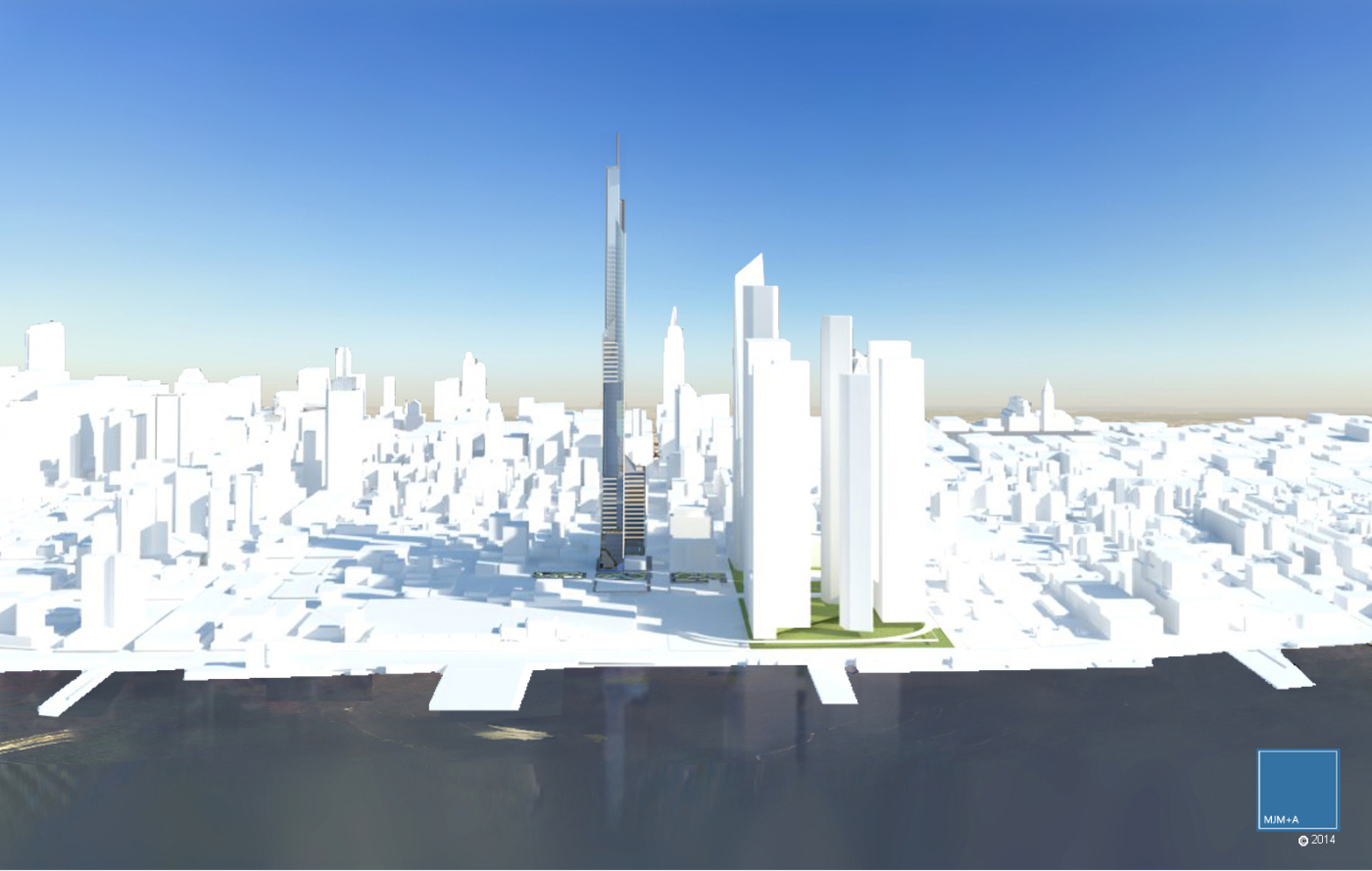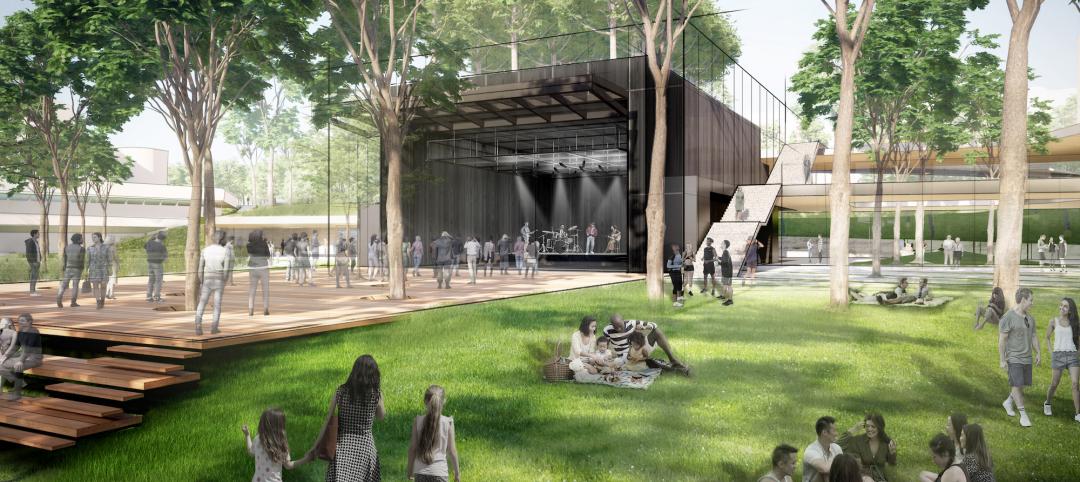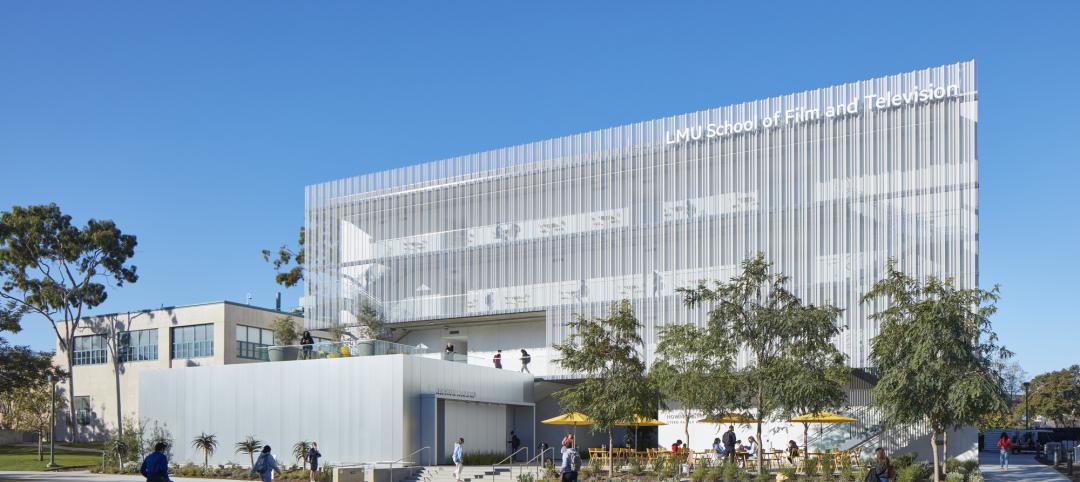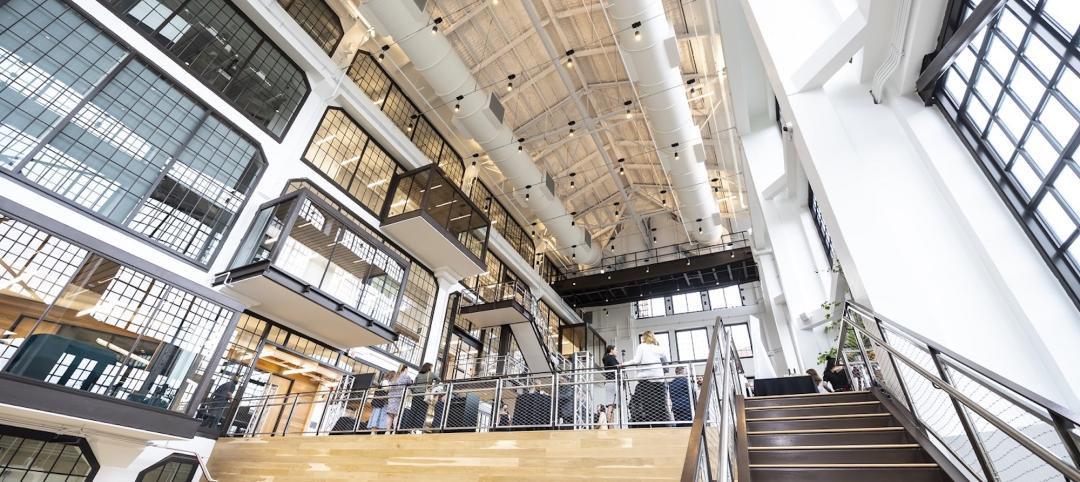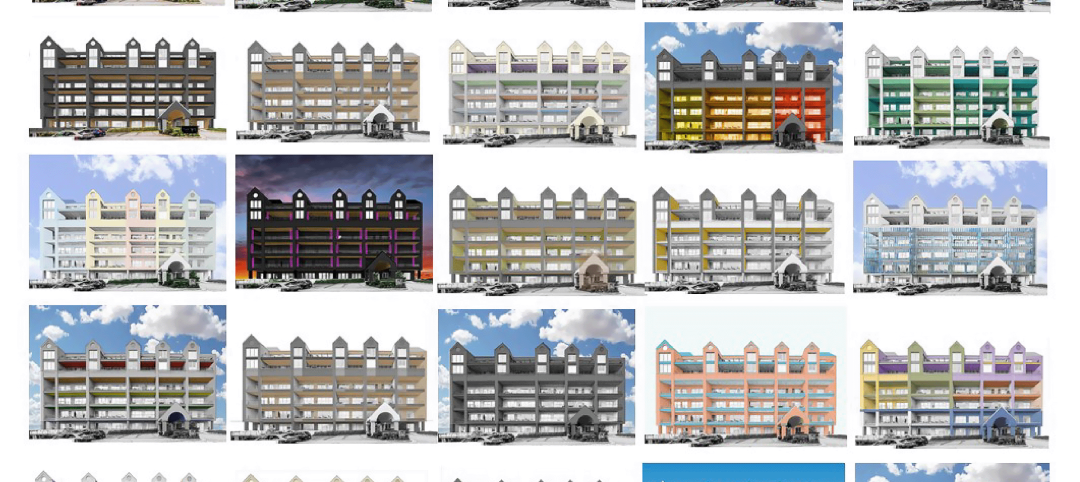MJM + A Architects recently unveiled its plans for the construction of Hudson Spire, a 1,800-foot-tall tower that would become the tallest building in North America.
The structure includes approximately 1.2 million sf for high-end retail, office, hotels, and residences in the heart of Hudson Yards, a dynamic new neighborhood and cultural center in development on 10th Avenue from 34th to 40th Street, on the site of what was formerly the West Side Rail Yards.
Hudson Spire would be on a section of the new Hudson Boulevard, overlooking a park-like public space that is the centerpiece of the neighborhood. The building will face the Hudson River and be less than two blocks from the Jacob Javits Convention Center.
Michael J. Macaluso, Principal and Founder of MJM + A Architects, was retained by the property owners and their exclusive real estate broker, Massey Knakal, to come up with a grand design for the building.
“This is a once-in-a-lifetime opportunity that architects dream of,” said Macaluso. “When the senior executives of Massey Knakal, James Nelson and Bob Knakal, and Anthony Volpe of the Rosenthal Group first laid out for us the challenge of creating an 1,800-foot-high mixed-use tower for Hudson Yards, we were both thrilled and inspired. As architects, our job is to interpret the dreams of others. The creative geniuses of our design studio, led by my partner Keith Lucas, came up with a stunning vision of a vibrant glass structure that literally jumps from its bases and soars to the stars.”
Hudson Spire is slated to have 110 stories, offering a unique combination of commercial and residential space. Floors one through five will host upscale restaurants and retailers, on top of which will be 15 stories of office space. Floors 21 through 85 are designated for three separate high-end hotel properties, each with approximately 200 guest rooms, lavish amenities, and event/conference space.
The top 25 floors will be luxury residences, with one or two units per floor, concierge service, private elevators, glass walls on all four sides, and stunning views that extend from the Statue of Liberty to the George Washington Bridge and beyond.
“Hudson Yard represents the last frontier in undeveloped Manhattan property,” said Macaluso, “and Hudson Spire will be right in the middle of this dynamic new neighborhood with all its cultural attractions, entertainment, and river views. And its close proximity to the Javits Center makes it an excellent choice for Fortune 500 executive travelers.”
Superthin skyscraper design
Hudson Spire follows the “super tall / super thin” strategy of other recent luxury high-rise residences, mandated by the space, cost and zoning realities of Manhattan property. Starting at a base width of approximately 100 feet, the edifice will be physically set back as it rises, tapering to just 75 feet in width at the top floors.
The structural challenges of high winds and complex elevator requirements are solved with a hybrid reinforced concrete and steel frame, encased by alternating reflective and non-reflective high powered glass.
“There’s not a lot of façade to work with,” said MJM + A's Lucas, “so we wanted to make it visually interesting. We decided, rather than go with a typical singular surface, let’s do something different and more dynamic. Let’s vary the composition of the glass color and reflective property, with lots of intersecting angles that play off one another, so that sunsets and city views will look different on one face of the building than on the others.”
At 1,800 feet, Hudson Spire will be even taller than the recently-constructed Freedom Tower at the World Trade Center. “Since 9/11, the city has gone through a long healing process. The owners of the property want to create a building that looks forward, not back, that will uplift the city but is unrelated to 9/11,” says Macaluso. “Hudson Spire reflects the dawn of a new age, emphasizing the global character of New York City as a business hub, a tourist destination, and the many foreign residents who now call it home. Hudson Spire will be a welcome addition to the Manhattan skyline, and to the spirit of the city itself.”
Related Stories
Sustainability | Jan 9, 2023
Innovative solutions emerge to address New York’s new greenhouse gas law
New York City’s Local Law 97, an ambitious climate plan that includes fines for owners of large buildings that don’t significantly reduce carbon emissions, has spawned innovations to address the law’s provisions.
Fire and Life Safety | Jan 9, 2023
Why lithium-ion batteries pose fire safety concerns for buildings
Lithium-ion batteries have become the dominant technology in phones, laptops, scooters, electric bikes, electric vehicles, and large-scale battery energy storage facilities. Here’s what you need to know about the fire safety concerns they pose for building owners and occupants.
Market Data | Jan 6, 2023
Nonresidential construction spending rises in November 2022
Spending on nonresidential construction work in the U.S. was up 0.9% in November versus the previous month, and 11.8% versus the previous year, according to the U.S. Census Bureau.
Industry Research | Dec 28, 2022
Following a strong year, design and construction firms view 2023 cautiously
The economy and inflation are the biggest concerns for U.S. architecture, construction, and engineering firms in 2023, according to a recent survey of AEC professionals by the editors of Building Design+Construction.
Performing Arts Centers | Dec 23, 2022
Diller Scofidio + Renfro's renovation of Dallas theater to be ‘faithful reinterpretation’ of Frank Lloyd Wright design
Diller Scofidio + Renfro recently presented plans to restore the Kalita Humphreys Theater at the Dallas Theater Center (DTC) in Dallas. Originally designed by Frank Lloyd Wright, this theater is the only freestanding theater in Wright’s body of work.
University Buildings | Dec 22, 2022
Loyola Marymount University completes a new home for its acclaimed School of Film and Television
California’s Loyola Marymount University (LMU) has completed two new buildings for arts and media education at its Westchester campus. Designed by Skidmore, Owings & Merrill (SOM), the Howard B. Fitzpatrick Pavilion is the new home of the undergraduate School of Film and Television, which is consistently ranked among the nation’s top 10 film schools. Also designed by SOM, the open-air Drollinger Family Stage is an outdoor lecture and performance space.
Adaptive Reuse | Dec 21, 2022
University of Pittsburgh reinvents century-old Model-T building as a life sciences research facility
After opening earlier this year, The Assembly recently achieved LEED Gold certification, aligning with the school’s and community’s larger sustainability efforts.
Multifamily Housing | Dec 20, 2022
Brooks + Scarpa-designed apartment provides affordable housing to young people aging out of support facilities
In Venice, Calif., the recently completed Rose Apartments provides affordable housing to young people who age out of youth facilities and often end up living on the street. Designed by Brooks + Scarpa, the four-story, 35-unit mixed-use apartment building will house transitional aged youths.
Coatings | Dec 20, 2022
The Pier Condominiums — What's old is new again!
When word was out that the condominium association was planning to carry out a refresh of the Pier Condominiums on Fort Norfolk, Hanbury jumped at the chance to remake what had become a tired, faded project.
Cladding and Facade Systems | Dec 20, 2022
Acoustic design considerations at the building envelope
Acentech's Ben Markham identifies the primary concerns with acoustic performance at the building envelope and offers proven solutions for mitigating acoustic issues.


